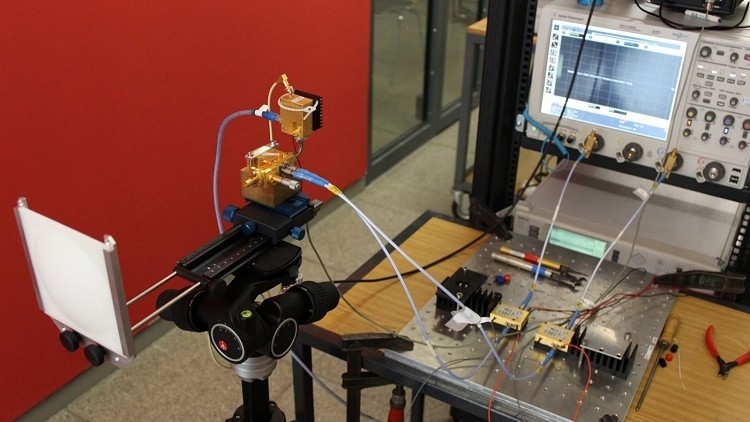Wi-Fi is one of the most convenient technologies in recent memory but if you want blazing fast speeds, a wired network is still the best bet. That may all be changing, however, as a team of German scientists from the Fraunhofer Institute for Applied Solid State Physics (IAF) and the Karlsruhe Institute of Technology (KIT) have developed a Wi-Fi network that can transfer data at 100 Gb/sec.
The technology uses super-high frequency signals (237.5GHz) to pull off the feat. At such speeds, you can send a full Blu-ray disc worth of data in two seconds. Unfortunately, however, there's a catch: these high-frequency signals aren't exactly suited for home use because they aren't as good at penetrating obstacles as the low range frequencies that today's home routers rely on.
Because of this limitation, the technology would be great for line-of-sight applications but not so much in a home setting with walls and other obstacles.
The group is already well-established as they previously set the record for the world's fastest Wi-Fi with a 40 Gb/sec connection. According to one of the researchers, they won't be resting on their laurels as they have worked up another method to increase speeds even further.
By using optical and electrical multiplexing techniques (simultaneously transmitting multiple data streams) and by using multiple transmitting and receiving antennas, the data rate could be multiplied. This, according to Swen König, could allow for systems with a data rate of up to 1 terabit per second.
